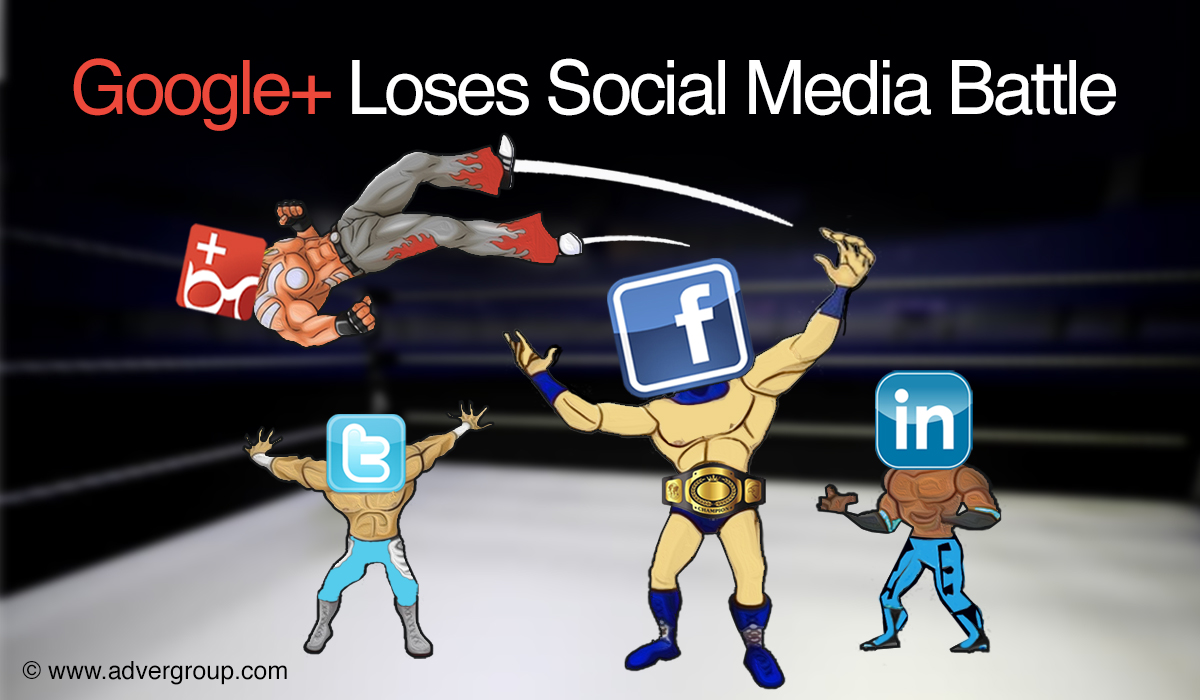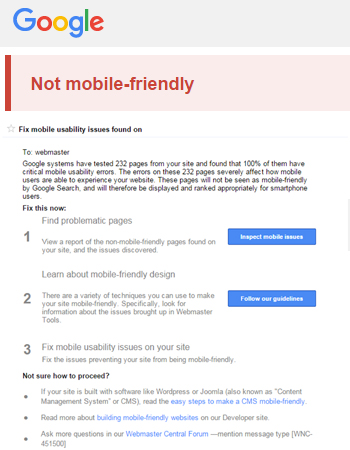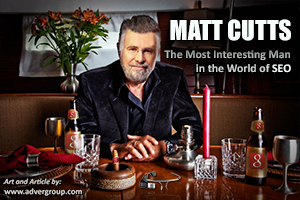Displaying items by tag: Industry News
Google and Microsoft Reduce Workforces, Both Hint at Advances in Artificial Intelligence (AI)
 Is the current economic crisis the real reason for tech industries recent reduction in workforces? Yes, the economy is in bad shape. Interest’s rates are high and inflation is climbing, but it is also evident that the recent leaps and bounds made within the developments of Artificial Intelligence (AI), is making it easier for BIG TECH to part with their employees.
Is the current economic crisis the real reason for tech industries recent reduction in workforces? Yes, the economy is in bad shape. Interest’s rates are high and inflation is climbing, but it is also evident that the recent leaps and bounds made within the developments of Artificial Intelligence (AI), is making it easier for BIG TECH to part with their employees.
Google Cuts 12.5% of Workforce in 2023
First, to put Google cuts in context: in Q3 2021 Alphabet Inc. reported 150,028 total employee’s. On January 20, 2023 Sundar Pichai CEO of Google and Alphabet released a statement “A difficult decision to set us up for the future”. His statement goes on to convey that “We’ve (Google) decided to reduce our workforce by approximately 12,000 roles” (12.5% of their company). Later in the statement he says that the company is pivoting and recalls Google “to be AI-first years ago led to groundbreaking advances across our businesses and the whole industry.”
Sherwin-Williams Chicago Fiesta Latina | Website Design and Video Production for Painting Contractors
 In 2023, as Sherwin-Williams Latin American Resource Group prepares for their 2nd annual Fiesta Latina, they asked AdverGroup to assist in producing two video commercials to help promote the upcoming events. One video is narrated by a Spanish speaking narrator and another version narrated by an English voiceover artist with a Spanish Accent. The video footage which was captured at the 1st Annual event in 2022 was repurposed and used to promote the upcoming event in 2023!.
In 2023, as Sherwin-Williams Latin American Resource Group prepares for their 2nd annual Fiesta Latina, they asked AdverGroup to assist in producing two video commercials to help promote the upcoming events. One video is narrated by a Spanish speaking narrator and another version narrated by an English voiceover artist with a Spanish Accent. The video footage which was captured at the 1st Annual event in 2022 was repurposed and used to promote the upcoming event in 2023!.
Sherwin-Williams is a paint manufacturer who ares about the painting contractors that they supply paint to. In efforts to provide more resources to Latin American painting contractor Sherwin-Williams formed their Latin American Resource Group. This group helps painting contractors and companies realize other resources for their business to help them become successful. One example is how Sherwin-Williams brought AdverGroup Web Design onboard. By introducing many of their painting contractors to AdverGroup, Sherwin-Williams is helping their contractors achieve more new business, when they have a professional painting contractor website that is search engine optimized.
Please take a moment to view the various videos produced by, and gallery of images captured by AdverGroup Web Design.
SEO is not a Destination, it is a State of Mind: Search Engine Optimization Coach
 All business owners and entrepreneurs have the same goal: That is to be found on page #1 of Google Search Engine. That single objective requires most conventional businesses to travel along the same path. As a Creative Director based in the Chicago area, I have worked with countless clients over the years, these clients span countless industries. We work for old companies and start-ups, many of these clients even within the same industry, many of who are often even competitors.
All business owners and entrepreneurs have the same goal: That is to be found on page #1 of Google Search Engine. That single objective requires most conventional businesses to travel along the same path. As a Creative Director based in the Chicago area, I have worked with countless clients over the years, these clients span countless industries. We work for old companies and start-ups, many of these clients even within the same industry, many of who are often even competitors.
In any case, to become relevant in any industry or niche, the path these business owners must travel today, is not like the days of old. They are not buying advertisements in the yellow pages or in newspapers (do either of those even still exist). Client's seeking success in today's modern world of business are all looking to conquer search engines. CLICK HERE TO LEARN MORE
Note to Website Owners: COVID-19 Sends Business Online, Ecommerce and Internet Activity Rise
 Due to the Coronavirus (COVID-19) Pandemic, the World is seeing a shift in the way business is done. With much of the World’s work-force sidelined, and with retail stores closing across the United States, our economy is evolving and consumers are looking for virtual spaces to wander.
Due to the Coronavirus (COVID-19) Pandemic, the World is seeing a shift in the way business is done. With much of the World’s work-force sidelined, and with retail stores closing across the United States, our economy is evolving and consumers are looking for virtual spaces to wander.
During the COVID-19 pandemic, for those of us who are fortunate enough to remain healthy, some of us have taken advantage of the World being paused, by getting our Spring cleaning accomplished at home. Clearing closets and clutter have been accomplished. However, if you are a business owner and/or website owner, knowing where the World's economy is headed (online), have you reviewed your business plan and website to make sure they are both adequate vehicles that are capable of carrying your business into the future?
Stealing Images is a Crime, Avoid Copyright Claims Using FREE and/or PAID Royalty-Free Stock Images
 This article provides some insight into copyright infringement and/or copyright claims, as it relates to the use of images on websites, while also offering ways to avoid copyright claims. This includes providing proactive actions and links to resources for free royalty-free stock images and paid royalty-free stock images.
This article provides some insight into copyright infringement and/or copyright claims, as it relates to the use of images on websites, while also offering ways to avoid copyright claims. This includes providing proactive actions and links to resources for free royalty-free stock images and paid royalty-free stock images.
If you own a website, or are a web designer who has used images without securing licensing then you probably know this can be a real costly endeavor. Copyright infringement is a real and occurs more often than you think. This occurs both on purpose, and inadvertently. In any case, the attorneys who will be contacting you do not care if it was a mistake or not. This is why it is important to use images from a trusted source (not Google Image Search), and/or license your images from a trusted stock image resource.
Before we get into providing solutions to avoiding copyright claims, let us first understand the nuts and bolts of the issue which can be realized by reviewing some frequently asked questions and answers relative to copyright infringement as it relates to "image usage on the internet".
Google Shuts Down Google+, Facebook Wins Social Media Battle
 In October of 2018 Google announced they would be "Protecting your data, improving our third-party APIs, and sunsetting consumer Google+". Later in December another update would come as Google announced "Expediting changes to Google+". Most recently in December of 2018, deletion dates were provided when Google emphasized that it will shut down Google+, "due to low usage and challenges involved in maintaining a successful product that meets consumers’ expectations." as provided in Google's official statement.
In October of 2018 Google announced they would be "Protecting your data, improving our third-party APIs, and sunsetting consumer Google+". Later in December another update would come as Google announced "Expediting changes to Google+". Most recently in December of 2018, deletion dates were provided when Google emphasized that it will shut down Google+, "due to low usage and challenges involved in maintaining a successful product that meets consumers’ expectations." as provided in Google's official statement.
While the number of mobile device users is growing, the number of social media networks is also constantly growing. However, with the recent news of Google sunsetting Google+, the "social media battle field" just got thinner.
Did Social Media Growth and Mobile Device Boom Help Trump?
Mobile devices and social media have surely become a part of most peoples daily life. Today, these pocket sized computers have proven useful for users of all age groups. While smart phone owners use their devices for a variety of tasks including: entertainment, information and/or business; mobile devices coupled with the growth of social networks maybe changing the world beyond providing convenience as relates to access to email on the go. The use of mobile devices and the growth of social media may very well be responsible for shaping history, as it is widely believed that social media may have played a major part in the 2016 Presidential election.
Though politics are discussed in this article, the focus of this article is technology based.
How to Fix Google Usability Issues Using Mobile Friendly & Responsive Web Design
 In 2015 Google notified all website owners of issues on their site relative to mobility issues. If your website was deficient and/or you have received an email that provided a warning stating that “Google systems has tested your site finding a percentage of your website’s pages to have critical mobile usability errors", then this is something you really should resolve.
In 2015 Google notified all website owners of issues on their site relative to mobility issues. If your website was deficient and/or you have received an email that provided a warning stating that “Google systems has tested your site finding a percentage of your website’s pages to have critical mobile usability errors", then this is something you really should resolve.
Is it a valid concern if a website is not optimized for mobile devices? That question depends on the answer to another question. How many mobile device users are their versus desktop users. In May 2015, in the “Google Inside Adwords Blog”, within the article titled "Building for the next moment", Google stated that “Google searches take place on mobile devices than on computers in 10 countries including the US and Japan”. Furthermore, www.statista.com authored an article titled "Statistics and Facts on Mobile Internet Usage" which reports that "mobile phone internet user penetration was 52.7 percent in 2015" and suggests the figure will climb to 63.4 percent by 2017.
Matt Cutts is the Most Interesting Man in the World of SEO
 If you don’t know who Matt Cutts is, then you probably have not been paying much attention to the world of Search Engine Optimization (SEO). If you own or manage a website and have an interest in growing your web presence, then its time you learn more about Matt Cutts.
If you don’t know who Matt Cutts is, then you probably have not been paying much attention to the world of Search Engine Optimization (SEO). If you own or manage a website and have an interest in growing your web presence, then its time you learn more about Matt Cutts.
When viewing Google’s Management Team Page, provided on their company website. You will not see a photo or even a description of Matt Cutts. I find this funny considering, that when Matt Cutts speaks, his words have a more significant impact on the world of SEO than any other Google staff member.
Perhaps you are more familiar with the "stay thirsty" ad campaign put on by Dos Equis Beer. Whereas their spokesman is a older distinguished gentlemen who is lauded as "the most interesting man in the world". I could not help but to rewrite many of the popular sayings so that they are relevant to the world of SEO and Matt Cutts.
"Search engines base their results upon his guidelines"
"His words are considered golden"
"He is fluent in all search engine algorithms, even those that have not been developed yet"
292 Million Dollar Website: Healthcare.gov
 Healthcare.gov may be the most talked about website since the days of Facebook going public! Healthcare.gov is a healthcare exchange website created by and operated under the United States Federal Government as per the provisions of the Patient Protection and Affordable Care Act (PPACA) which was signed into law March 23, 2010. The PPACA was designed to serve the residents of the thirty-six U.S. states that opted not to create their own state exchanges. In order to achieve the goals of the PPACA, as with many other businesses, industries and endeavors, a service based website was required.
Healthcare.gov may be the most talked about website since the days of Facebook going public! Healthcare.gov is a healthcare exchange website created by and operated under the United States Federal Government as per the provisions of the Patient Protection and Affordable Care Act (PPACA) which was signed into law March 23, 2010. The PPACA was designed to serve the residents of the thirty-six U.S. states that opted not to create their own state exchanges. In order to achieve the goals of the PPACA, as with many other businesses, industries and endeavors, a service based website was required.
Healthcare.gov is the government website which was developed to provide a way for Americans to “comparison shop” between different possible health insurance options for an individual within his or her state, with a visual format somewhat similar to websites such as Amazon.com and Etsy.
While the Healthcare.gov website has been criticized and dragged through the mud, is it really a broken website or is all the noise created by those who oppose the politics behind the National Health Care initiative?


















